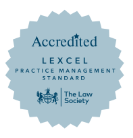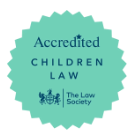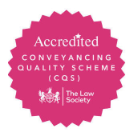Personal Injury Claims - Frequently Asked Questions.
1. WHO CAN CLAIM?
If you have been injured because of the fault of someone else, you can claim financial compensation through the Courts.
If you are the injured person, then you can claim on your own behalf. You would be identified as a "Claimant".
If the injured person is under the age of 18 the Court will appoint someone to claim on their behalf called a “litigation friend” – this is usually a parent or close relative.
If the injured person is incapacitated and/or cannot make decisions for themselves the Court may appoint a "litigation friend". Again this is usually a close friend or relative.
If a claim is made on behalf of someone who has died, their dependants and/or personal representatives have the right to make a claim.
2. IS THERE A TIME LIMIT FOR CLAIMING?
Yes – in most cases you have 3 years from the date of the accident to issue Court proceedings. However, if you do not settle the matter or issue Court proceedings within 3 years then you are too late to do so and your claim will become statute-barred. The statute in question is the Limitation Act 1980.
Please note that for Criminal Injury Compensation Authority (CICA) claims, there is a 2 year time limit from the incident in which to submit your claim.
It is sensible in most cases to consult a solicitor at the earliest opportunity.
If you are suffering from an occupational illness such as deafness as a result of exposure to noise, or an asbestos related disease – then you have 3 years from the date you first knew (or should have known) that you were suffering from that illness, and you linked it to your employment.
If the victim is under the age of 18, the 3 year period will not start to run until their 18th birthday.
3. CAN YOU CLAIM IF THE 3 YEARS HAVE PASSED?
Occasionally, if there is a very good reason for the delay, the Court will allow a claim to be made “out of time”. An example is when the individual has suffered abuse and has only just begun to deal with what has happened to them. However these instances are rare and it is a matter for the Courts discretion. The safest course of action is to bring a claim within the 3 year limitation period.
4. HOW MUCH COMPENSATION WILL I BE AWARDED?
The amount of compensation you receive will depend on the seriousness of your injuries or illness. See Assessing Value of Compensation. Our Personal Injury Team always seek to ensure that the maximum compensation is recovered as quickly as possible.
5. WILL I HAVE TO ATTEND A MEDICAL EXAMINATION?
In order to establish the extent of the injury you have sustained we will need to obtain a full copy of your GP and Hospital records. These will then be sent to an independent medical consultant who will arrange to see you and who will review your records.
He will then prepare what is known as a medico-legal report and within that he will comment on the accident and whether the injury was caused by the accident. It will also detail the effect the accident as had on your personal life at home and your ability to work.
He will then give a diagnosis and prognosis. Within the prognosis section he may recommend further treatment/surgery and he will comment on your future capabilities.
6. WHAT IS AN ‘INTERIM PAYMENT'?
We regularly seek and obtain interim payments for clients who have suffered financial loss arising from their accident. This can include loss of earnings and the cost of private physiotherapy. This is an early payment of part of the amount you will receive in settlement of the claim and will ease the financial burden.
7. WILL I HAVE TO GO TO COURT?
That depends. We always try to negotiate a settlement of your claim out of Court. However, where the defendant will not accept liability, it is frequently necessary to take Court action. At that point, the Court will control the rate at which your case progresses and what steps are to be taken.
8. DO I HAVE TO PAY FOR THE LEGAL COSTS?
We will check initially to see if you have legal expenses insurance to cover your claim.
If you do not have legal expenses insurance or any other insurance or cover for legal fees, we will advise you whether or not your case can be taken on a Conditional Fee Agreement or “No Win, No Fee” basis. Put simply, this means that if you win your case, the other side should pay your legal costs for you. If you lose, you will not pay your solicitors fees provided you have not provided misleading information or failed to co-operate with us during the claim.
We will also advise about After the Event Insurance and can assist in obtaining this for you and this will ensure that if your case is unsuccessful you don’t have any other fees to pay either.
For immediate, compassionate and free advice contact our Personal Injury Team who are ready to help you. 01392 209209.
Roger Henderson - 01392 209218.
Email: roger.henderson@rundlewalker.com









